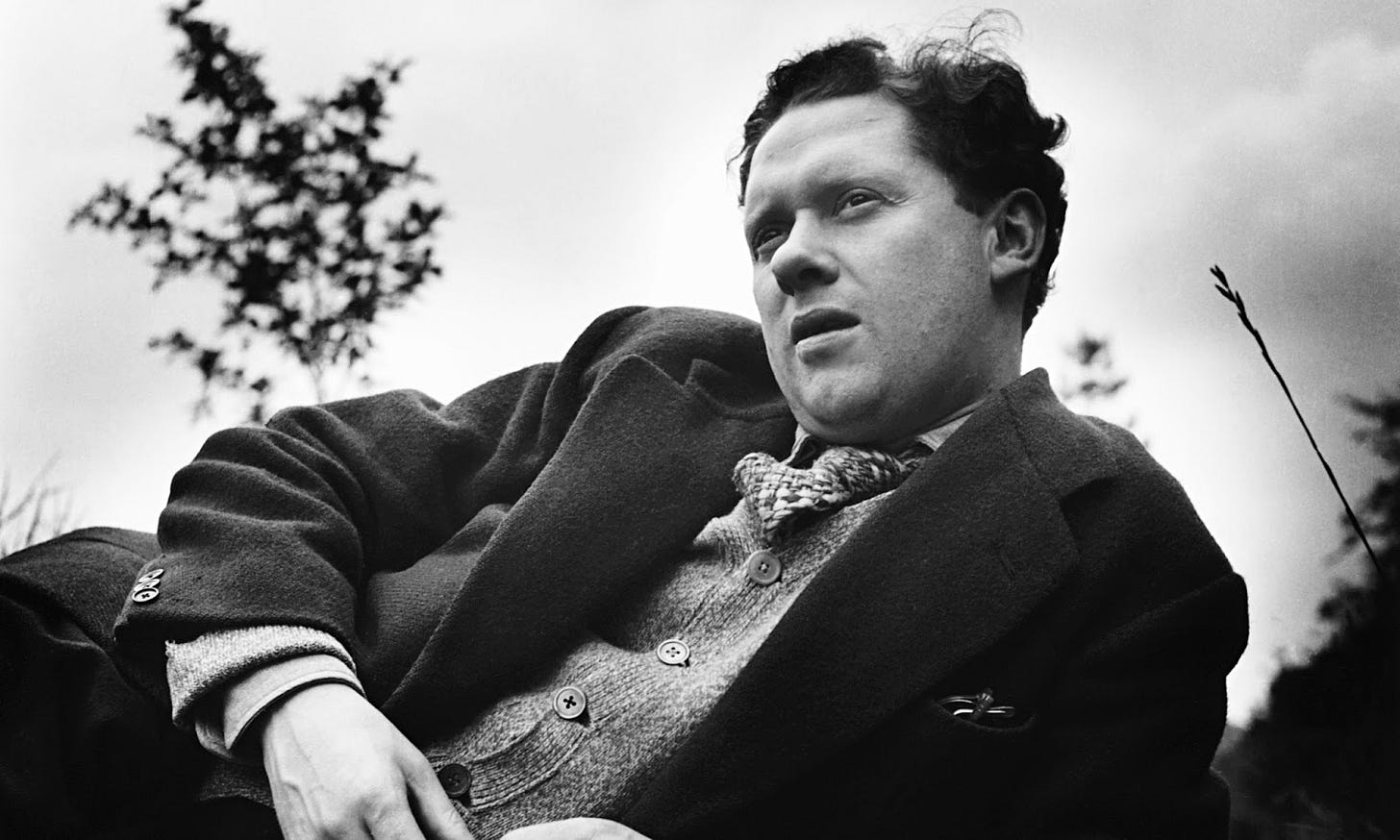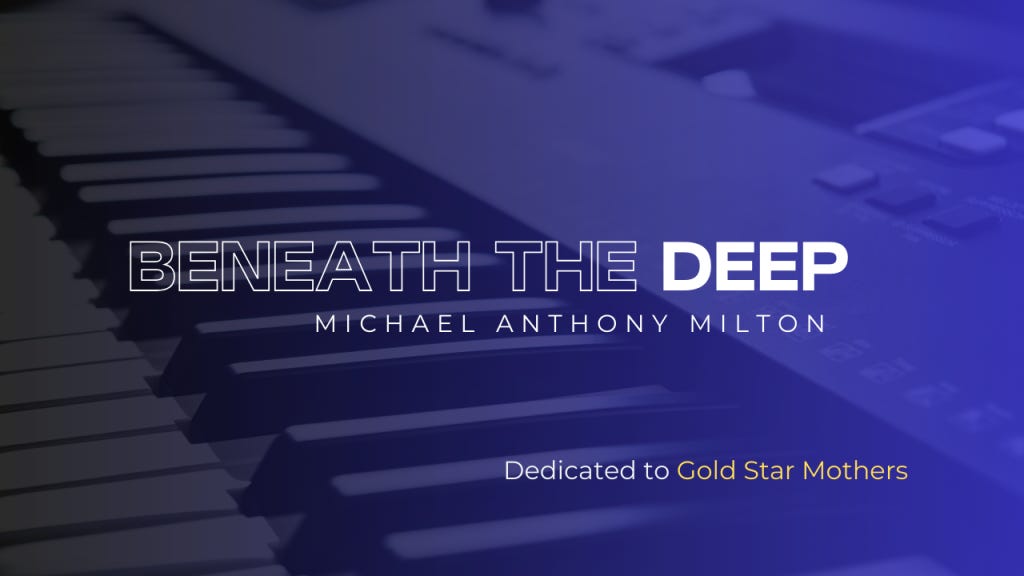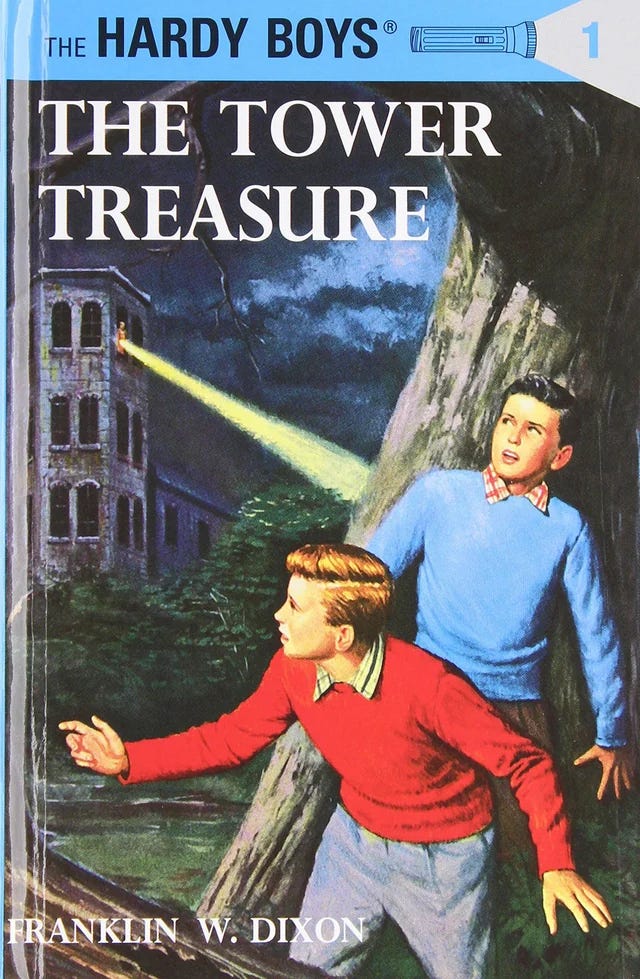Beneath the Deep: Remembering our Gold Star Mothers
I composed a song for Gold Star Mothers, I believe, in 2007 or 2008. I had ministered to many mothers, grandmothers, and widows since I became an Army Chaplain in 1991 (having been in Intelligence in the Navy before that). After the September 11th, 2001 Al Quida attacks, my caseload, sadly, increased dramatically. Out of this experience, I wrote “Beneath the Deep.” That is usually how I compose songs: I minister the Gospel to others, experience God’s grace amid chaos or tragedy, and am moved to write by believers demonstrating courage and strength in weakness. In this case, there was an inspirational event to birth the song and an experience that burned its message in my heart in a new way. I learned that friends from my school days lost a child and a grandchild (the latter while in the service of his country). I had not seen either Bambi or Bubba for many years. But somehow, the friendships of childhood transcend time. Some part of the pain of their loss touched me deeply. I had ministered to hundreds of families over thirty-two years of military service (and pastoral ministry). Yet, I felt helpless to offer my deepest Christian sympathies for this family. So, I raised a song and created images to create the video in this post. It is a small thing for such a huge loss. But we must offer the fish and loaves we have.
I. Gold Star Friends
The Gold Star Parents I choose to honor are Bambi and Bubba (Gold Star grandparents, really, but their influence in the boy’s life is nothing less than a mom and dad; as an orphan reared by my Aunt Eva, I understand). Bambi was my first crush as a lad, but I am sure she never knew it. If she did, she exercised good sense in focusing on her seventh-grade studies and the girls’ basketball team, and she excelled in both. I was an eighth-grade farm boy from the back woods, much more at home with cows, chickens, goats, and comic books than girls. And so I was out of my league. Heck, I didn’t even have a league! So, that gracious and good Christian girl was spared any further bother from that awkward boy. She would grow up to marry a very close friend of mine, Bubba. We spent many hours together. Besides an avid outdoorsman, and consummate student, Bubba was a hard-hitting middle-linebacker on our football team. I know firsthand how he shot through the line to punch out quarterbacks before they could figure out what (literally) hit them. I know because I was a quarterback knocked down by Bubba numerous times at football practice! I would crawl from the ground and think, “Okay, Bubba. Just hit that opposing quarterback like that on Friday night!” And he did.
Bubba was (and is) an all-around fine fellow from a great family. Bambi is a serene and gracious lass from a pioneering family in that part of the country, just like mine. Indeed, the Miltons and Bentons cut similar paths from the Carolinas to the old Mississippi Territory, from the Pee Dee River basin in North Carolina to the present South Alabama-North Florida (until the Fort Mims Massacre of 1813), across the piney-wood belt to the Amite River. This was The Great Migration from 1798 to about 1830. Denham Springs, the larger area we are from, used to be “Benton’s Ferry” and “Benton’s Landing.” That is where my great-great grandfather pulled up with a federal land bounty for service in the War of 1812. And Walker, another sizable town in Livingston Parish, was “Milton Old Field,” founded by that same fore-bearer, Michael Milton (1795-1863). All of us had deep roots there. The native accent of old Livingston Parish is almost identical to the traditional Piedmont of North Carolina, a vestige from its English, Scottish, and Welsh founders.
Back to my friends. Bambi and Bubba married while I was away in school with the Navy. When I first heard about that marriage, I was not surprised and I was delighted for them both. These two salt-of-the-earth individuals were perfect for each other. She was pretty, and Bubba was a handsome lad. Both were intelligent, athletic, diligent, and hard-working; I always considered them the all-American couple. And, indeed, they did very well in their lives together. Their community—no, I’d rather say “the world”— is better off because of their lives.
A few months ago, my cousin, Berlin, who returned to the “ancestral grounds” after a career away, told me how Bambi and Bubba’s losses, and those have been pronounced, included a child (a grandson like a son) serving his country as a Marine. I could not shake the thought of their heartache. I felt pain for them. My wife, Mae, can attest that I can be stricken with a burden or a memory of pain and cannot escape it without a response (of course, open-hearted prayer is the most significant and most effective response when a personal response is not available; but am I always so faithful to bring these burdens to the cross?). Moreover, I often alleviate the burden by picking up a guitar, seeking to locate a song at the piano, or hiding away with a canvas and brush. In this case, I returned to a song I had composed and recorded. I initially wrote the piece for Gold Star Mothers, whom I encountered as an Army Chaplain. But I wanted to revive the song for Bambi and Bubba. In doing so, I pray that the song ministers to many others, too.
That is how this music video came to be. So, Bubba and Bambi, this is for you. I am tardy in responding, but my heart has been filled with the prayers of both mourning and hope. May you know the healing touch of our resurrected and living Savior. He loves you. He is with you. He will never leave you nor forsake you. I hear of your ministry to other Veterans, and I am in awe of your resilience and vision. As one Veteran, I thank you. I want to honor you and your heroic grandson with this small expression of God’s love.
I also offer this to any of you who are hurting from loss. The message of this song is that death is not the final chapter in our stories. Beneath the profound pain of loss, there is life waiting for the time when tears will be wiped away, and suffering will be no more. No one understands this pain or clings more tightly to that hope than those who have lost a child. Because of the victory over death by our Lord Jesus Christ, we can be assured that those whose bodies “sleep in Jesus” (though their souls are immediately with Christ in heaven) are like potent seeds in the ground. And those seeds are destined to bloom when Christ comes again. Therefore, we comfort each other with that Good News.
“The message of this song is that death is not the final chapter in our stories. Beneath the profound pain of loss, there is life waiting for the time when tears will be wiped away and suffering will be no more. No one understands this pain or clings more tightly to that hope than those who have lost a child.”
Michael A. Milton
Mae and I do pray for God’s blessing of healing, especially for all who are wounded by the searing loss of a child. As a minister of the Gospel in uniform, now retired, I know the many sacrifices our service members (police, fire, and other first responders) and families must make. You are not forgotten. I want you to know that many out here are eternally thankful.
Therefore, to all of our Gold Star Mothers and you, Bambi: My family and I send this passage:
“But I do not want you to be ignorant, brethren, concerning those who have fallen asleep, lest you sorrow as others who have no hope. For if we believe that Jesus died and rose again, even so God will bring with Him those who sleep in Jesus.
For this we say to you by the word of the Lord, that we who are alive and remain until the coming of the Lord will by no means precede those who are asleep. For the Lord Himself will descend from heaven with a shout, with the voice of an archangel, and with the trumpet of God. And the dead in Christ will rise first. Then we who are alive and remain shall be caught up together with them in the clouds to meet the Lord in the air. And thus we shall always be with the Lord. Therefore comfort one another with these words.”
1 Thessalonians 4:13-18 NKJV).
I stand with Gold Star Mothers and mourn with a hope born of resurrection. The music video “Beneath the Deep” follows. The location is https://vimeo.com/michaelamilton/beneath.
Though the lyrics are embedded in the video, I am also adding the file.
Beneath-the-Deep-lyrics-and-dedicationDownload
The following reflection is an excursus, a brief interlude in this post, to reflect on the idea of school days, friends, names and faces that never leave us.
II. Where Have the School Days Gone?
Thinking of the lads and lassies from our schooldays is like a dream—an antique, yellowed dream, a faded Polaroid dream—a passing shadow cast by floating clouds from the youthful days of our lives. In my quiet moments of forced retirement, the faces, laughter, and spirits of my schoolmates rise before me. Though it is July as I write, I sense an autumnal breeze that excites the mind and makes us all wonder what’s coming. I can smell the leather of new shoes and a faint whiff of cedar from the chests where clothing has been stored in the old, old houses of our community.
I see the dusty blackboards, an oscillating fan on the teacher’s desk, its steady white noise lulling me to sleep on a warm September afternoon. A hardware-sponsored calendar hangs on a papier-mâché decorative wall, alongside children’s storybook pictures of Washington, Jefferson, and Thomas Edison. The girls, though seemingly grown-up over the summer, and more mature than we were, still carefully present their hair and dresses, giggling secretively in groups that baffle the boys. The boys seem unchanged, disinterested in anything but critters and mischief, both of which they (we) have brought to school. I hear the tiny clanking of number two pencils with rulers in cigar boxes. Inside lunch boxes or brown paper bags, contents sometimes spill open, revealing kneaded erasers, smushed peanut butter-and-jelly sandwiches next to a Hardy Boys mystery book, and a bewildered green tree frog moving cautiously across a New Testament that a mother squeezed in.
So many memories to cherish. Where do they all reside? That Hardy Boys book, now weathered and worn, likely rests quietly among treasured souvenirs and dusty yearbooks. Perhaps there’s a dried-out four-leaf clover or a child’s valentine card marking—not just a page—but a moment that forever touched a child’s heart.
Friends we knew
Follow us through
All of the days of our lives
Love we shared
Waits for us there
Where our wishes forever reside.—Words and Music by Dan Fogelberg, “Only the Heart May Know” (1981, Epic).
III. Fern Hill
I think of Dylan Thomas (1914-1953) and his wonderful poem “Fern Hill (1945).” The Columbia scholar William York Tindall (1903-1981) reviewed Fern Hill and wrote, “The theme of ‘Fern Hill’ is not how it feels to be young, but how it feels to have been young.” Yes. And there is a world of difference between the two. To be or to have been, that is the question.
Thus, the Minstrel of Mumbles, the Songster of Swansea:
“Now as I was young and easy under the apple boughs
About the lilting house and happy as the grass was green,
The night above the dingle starry,
Time let me hail and climb
Golden in the heydays of his eyes,
And honoured among wagons I was prince of the apple towns
And once below a time I lordly had the trees and leaves
Trail with daisies and barley
Down the rivers of the windfall light.
And as I was green and carefree, famous among the barns
About the happy yard and singing as the farm was home,
In the sun that is young once only,
Time let me play and be
Golden in the mercy of his means,
And green and golden I was huntsman and herdsman, the calves
Sang to my horn, the foxes on the hills barked clear and cold,
And the sabbath rang slowly
In the pebbles of the holy streams.”
One should listen to Dylan Thomas to appreciate the lilting lyrical “hymnody” of the inimitable Welshman’s lines. I recommend listening to the poet’s own recordings. Then, try out the recordings of the late Richard Burton and Sir Anthony Hopkins, both Welsh, who interpret Thomas slightly differently. But I prefer the poet’s voice. There is mischief going on behind those lines, and I can hear it!
But read (listen) to those lines: “Time let me hail and climb . . . honored among wagons . . . I was prince of the apple towns.” Soothingly charming and comfortingly innocent like a homemade patched quilt in a childhood winter; sadly distant and painfully lost, like a fogged-up brain at three in the morning. Fern Hill evokes both experiences in me. But as I take in Thomas’ sometimes elegiac memories of summers at his aunt’s home in the west of Wales, I reminisce about school days, the monochromatic sights and scratchy sounds of boys and girls in line for lunch that must now drift like lonely snow in a forgotten fairy tale or flutter like a wounded sparrow on a concrete ledge in February.

Final Thoughts
So, I shall leave nostalgia for another day and retreat—yet again—to a nap (Aunt Eva woke me from a nap after an asthma attack when JFK was shot; so, can any good come from a nap?). I have heard it said that nothing is so unexpected and sudden as old age with infirmity. I would add to that the impression of how many things are like childhood again and yet how far away that oft-enchanted time seems.
So, this song, these images, and these words form my prayer to God for all those who have suffered beyond measure and deserve our prayers and gratitude. Mostly, here is to childhood friends whose grief I wanted to share and whose courage I want to imitate—like Bambi. And Bubba. God bless you with the transformative power of the words of our Lord and our God:
“Jesus said to her, ‘I am the resurrection and the life. Whoever believes in me, though he die, yet shall he live’ (John 11:25 ESV).
Notes:
William York Tindall. “The Famous Fern Hill Poem Analysis.” The White Horse Tavern, nd. https://rebrand.ly/FernHillAnalysis. See his scholarly insights on Dylan Thomas here: William York Tindall, “The Poetry of Dylan Thomas,” The American Scholar 17, no. 4 (1948): 431–39, https://www.jstor.org/stable/41206634.
Dylan Thomas, Dylan Thomas Reading His Complete Recorded Poetry (New York and London: Caedmon Records, 1963), https://rebrand.ly/DylandThomasreadsFernHill.
Richard Burton Reads “Fern Hill” by Dylan Thomas, 2010, https://rebrand.ly/fernhillrichardburton; Sir Anthony Hopkins Reads Fern Hill by Dylan Thomas, 2019, https://rebrand.ly/HopkinsreadsFernHill.




